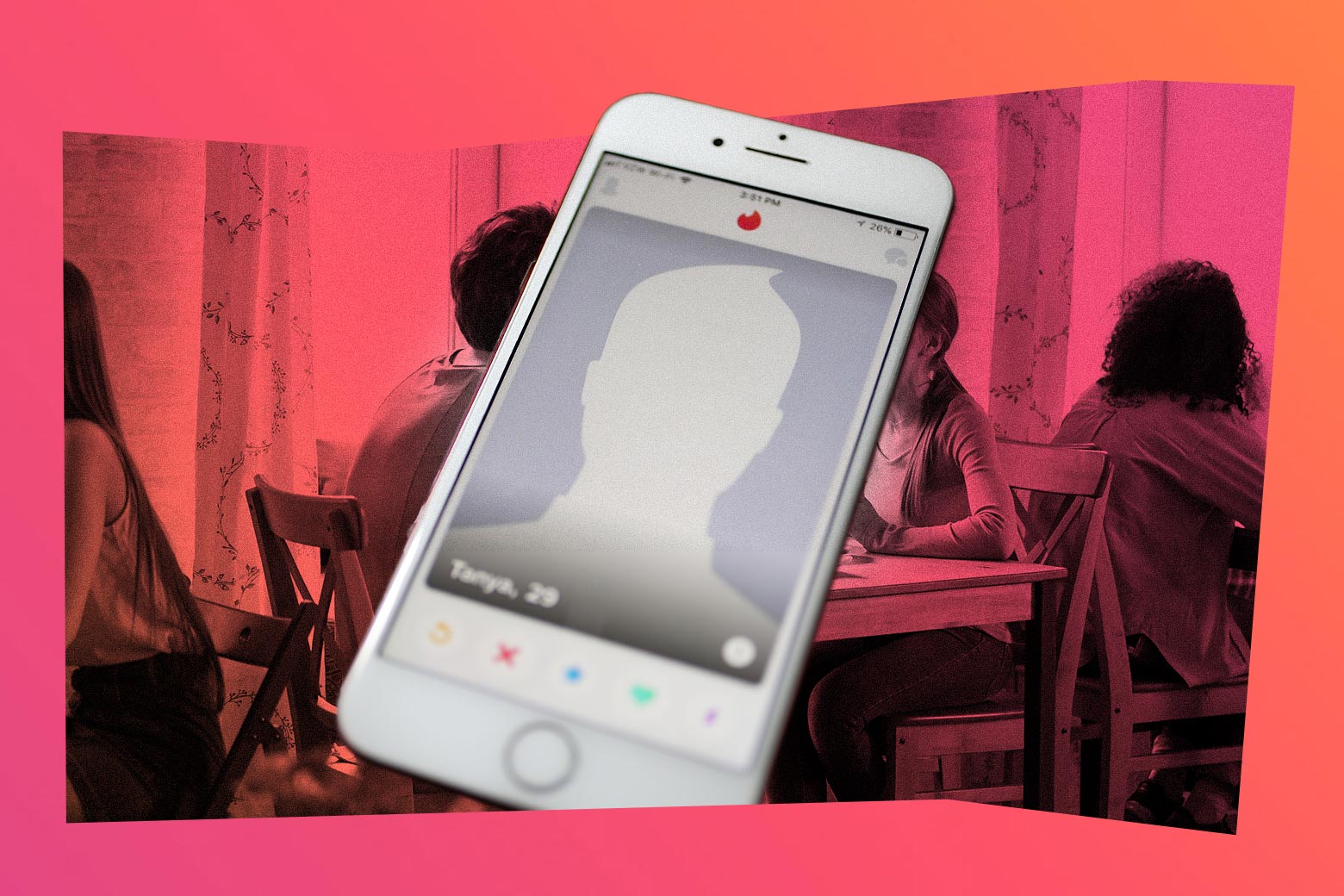Do Online Dating Apps Actually Facilitate Sexual Assault?

“By 2024, the global online dating market was valued at over $9.27 billion.”
The Guardian recently published an article revealing how dating apps have ignored women’s safety.
It focuses on Match Group, which owns nearly all of the most popular dating apps including Match, Hinge, Tinge, OK Cupid, and more.
However, Match Group describes itself in a statement as a leader in developing safety measures.
The global conglomerate points to the use of AI-powered tools to prevent harassment, identity verification for profiles, and a platform for collaborating with law enforcement.
But there is clearly a lack of real-world intervention, and there are security vulnerabilities, as recently discovered last summer. Security researchers have shown how they were able to view data such as sexual orientation, online status, and more.
A 2023 Pew study found that about half of people who date online say their overall experience was negative.
Dating Apps
Since the end of 2021 and the end of quarantine, Match Group’s share price has fallen by more than 80%. A new investigation is unlikely to slow that slide.
By 2024, the global online dating market was valued at over $9.27 billion. This thriving industry is projected to continue expanding, with forecasts indicating that the market could surpass $13.4 billion by 2025.
There are reports that Match Group keeps records of users who have been reported for sexual assault but does not take steps to properly ban them from the app network or alert law enforcement or the public.
The Dating App Reporting Project, a collaboration between the Pulitzer Center AI Accountability Network, The Markup, CalMatters, and The Guardian, created more than 50 test accounts on Tinder, Hinge, OKCupid, and Plenty of Fish.
The goal was to see how Match Group responds to reports of sexual assault and whether banned users can easily create new accounts.
The tests were conducted in two rounds: once in April and May 2024, and again in January and February 2025. The results were similar in both cases.
First, they tested whether Tinder banned users who had been reported for sexual assault, and how quickly. The result: In all cases, the reported users were banned within two days.
However, the investigation revealed that banned users were often able to create new Tinder accounts with exactly the same personal data using the same phone number — including name, date of birth, and profile photos.
It was also possible to re-register on other Match Group services, such as Hinge, OKCupid, and Plenty of Fish, without changing this data.
The case of Stephen Matthews is used as an example throughout the report. Matthews, a cardiologist, had been reported for rape multiple times on Hinge. Yet his account remained up — and was even considered a ‘Standout’ (a profile that received significant attention).
Last October, Matthews was sentenced to 158 years to life in prison; A jury convicted him on 35 counts of drugging and sexually assaulting 11 women between 2019 and 2023.
According to a recent report, additional women have accused Matthews of drugging and raping them that were not included in the court complaint.

Transparency Withheld
According to leaked internal documents and statements from former employees, Match Group has been identifying users who have been reported for drug use, sexual assault, or rape since at least 2016.
Internal company documents from 2019 and 2020 show thousands of reports of serious physical assault, abuse, or violence on OkCupid that were deemed serious enough to get users banned from all Match Group apps. This is among the information the company has withheld from the public.
Since 2019, the company’s central database has stored all reports of rape and assault across all its apps.
By 2022, that system — called Sentinel — was recording hundreds of such incidents every week, according to insiders.
When a user is banned for something serious — like sexual assault — a case is created in Sentinel with the phone number and email address associated with their account.
In effect, the database is intended to prevent people who have been banned from registering again or anywhere else. However, according to The Guardian, that’s exactly what hasn’t happened.
In 2020, Match Group announced that it would publish a transparency report listing reported cases.
But by February 2025, that report had not been published. Instead, the company has been internally debating what information to withhold.
Since 2021, Match Group has publicly promised to improve the safety of their products and share data, but company insiders say safety has not improved.
A brief hiring spree sparked by congressional and media scrutiny has been largely scaled back, according to former employees.
In 2024, the remaining employees from the central trust-and-safety team Match Group set up in response to increased scrutiny were let go and their jobs outsourced to overseas contractors.
Facing pressure from Wall Street, Match Group removed CEO Bernard Kim in early February 2025 as he struggled to cut costs and end the steady decline in subscribers to Match Group’s most powerful app, Tinder.

Legal Efforts
Members of the U.S. Congress have repeatedly requested data from Match Group on sexual abuse.
In February 2020, 11 US lawmakers wrote to then-CEO Shar Dubey asking for details on how the company responded to reports of sexual violence.
In July 2023, two Democrats, Rep. Annie Kuster of New Hampshire and Rep. Jan Schakowsky of Illinois, followed up after we asked about the status of their efforts. The company has yet to provide data.
In September 2024, the House of Representatives passed a bill that would require consumers to be notified if they interacted with a user on a dating app who was banned for defrauding consumers of money or personal financial information.
But the bill stopped short of addressing the issue of sexual assault on the apps, and it died in the Senate.
Dating apps have been around for nearly 20 years, and in that time, they've dramatically changed the way people worldwide date, but the forced isolation following the pandemic has caused these apps to boom in a big way.
A 2023 Pew Research poll found that 1 in 10 American adults in a relationship met their partner on a dating app.
About 30% of Americans have used a dating site or app, according to the survey, though that number varies widely by age. When looking at people under 30, 53% have used a dating site or app.

Sexual Violence
A report by the Australian Institute of Criminology published last November found that online dating platforms such as Tinder, Hinge and OKCupid have a high prevalence of sexual harassment, aggression and violence.
A total of 73% of the 9,987 people surveyed reported experiencing some form of sexual violence.
According to the report, using dating apps and more than one platform at a time increases the likelihood of experiencing sexual violence facilitated by dating apps such as sexual harassment, abusive language and online stalking.
The platforms have until April 1, 2025, to ensure their services comply with Australia’s world-first online dating safety law, which requires apps and sites to proactively disclose potential incidents of harm and take action against users who breach safety policies.
The law will also require apps and sites to disclose the number of terminated accounts and content moderation results to the eSafety Commissioner and ensure platforms engage with Australian law enforcement.

The Australian government has repeatedly warned that failure to comply with the law will lead to further regulatory action.
Communications Minister Michelle Rowland said the government was watching the industry closely in how they’re abiding by the law.
“The level of violence and abuse experienced by users of these online dating platforms is deeply concerning and it has to end,” she said.
Sources
- Rape under wraps: how Tinder, Hinge and their corporate owner chose profits over safety [Research]
- Match Group’s Fate Hinges on Tinder
- Key findings about online dating in the U.S. [Study]
- Dating Services Market Report by Type, Service, Demographics, and Region 2024-2032 [Report]
- Nearly 75% of dating app users have experienced sexual violence, staggering study reveals











